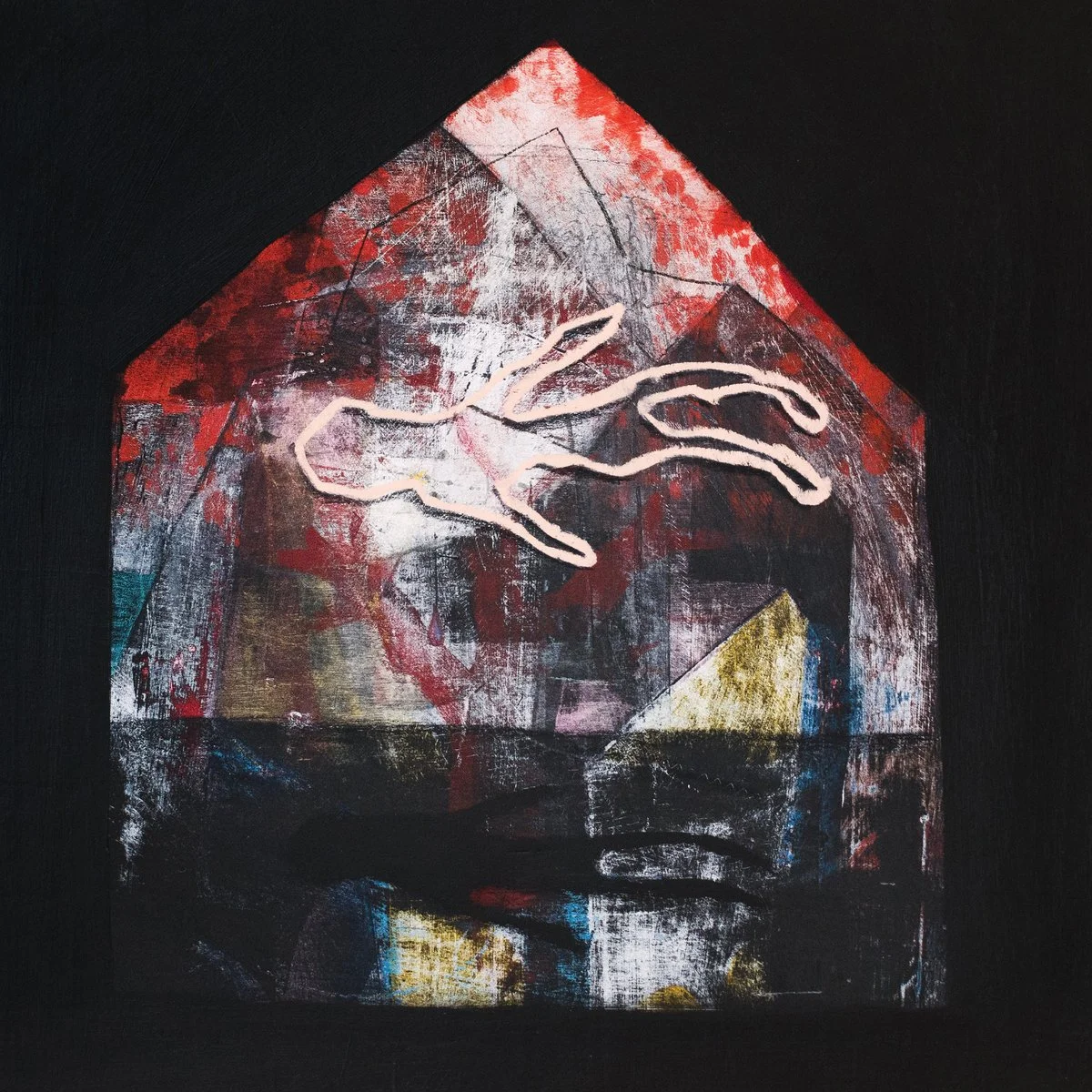by Kurt Orzeck
Centuries or even millennia after humans came up with scary stories around campfires, which eventually morphed into horror novels and then horror movies and so forth, we still don’t realize that we engage with terrifying, man-made creations not because we want to risk having a heart attack, but because the exercise is fun. Irk are here to remind us of that fact, to pester us with the truth that fear-inducing art forms make us feel alive more than any other varieties. Art can make us laugh, but that reaction quickly dissipates. Art can thrill us, but only the duration of the piece of work ends. Art can make us weep, remind us of what love and sex feel like, but that affecting manipulation ends seconds after the observer of art concludes their experience with it.
Irk’s The Seeing House is proof positive that fear, particularly fear of the unknown, cannot be rinsed off after a person’s interaction with a piece of art is complete. Truly frightening material drills so deep into mind and soul that it threatens our primal selves and thus poses an existential danger that cannot be left at the concert venue, movie theater, or art gallery. It latches onto us like a tapeworm and refuses to detach until it loses interest, dies, or is destroyed. Irk, an experimental, math-rock-obsessed band, haven’t only caught on to this dark side of the human experience; they’ve decided to embrace it so tightly that it is the band’s modus operandi.
Unlike the countless bands that believe the best way to evoke frightfulness is by wearing corpse paint, issuing albums that are relentlessly brutal from start to finish, or leaning into tired satanic imagery and irreligiosity, Irk are far more insidious. Absent from The Seeing House are most of the tired tropes that black and death-metal bands use often times as a crutch; Irk’s deceitful approach involves slower tempos (“Idiot Plot,” “Eating All of the Apple”), thick bass lines (“Toothache in Prison,” “The Great Wasp Of Reluctance”), and only a pinch of the bludgeoning riffage one would expect from a band birthed from the heart of darkness. One of the numbers on the record, “Lifetime Achievement Award,” even promulgates the consummately anti-metal philosophy that one should pay attention to the silence between the notes to truly appreciate the music at hand.
That’s not to say Irk doesn’t revel in chaos (“Abraxas Casino” exempted) or even an anarchic approach to their material. Because the record practically lacks melodies altogether, and because vocalist J.S. Gordon’s approach to performance appears to be barging into songs whenever he feels compelled to and without advance notice, it’s very difficult to predict what’s going to happen next. But that approach, in the end, is the surefire way to frighten listeners — and to keep those who revel in unpredictability throughout the record. The fear of the unknown will always trump the fear of what is to be expected, and by creating a record that never deviates from the former approach, Irk has presented us with a terrifying musical experience. Have fun with it, kids.

